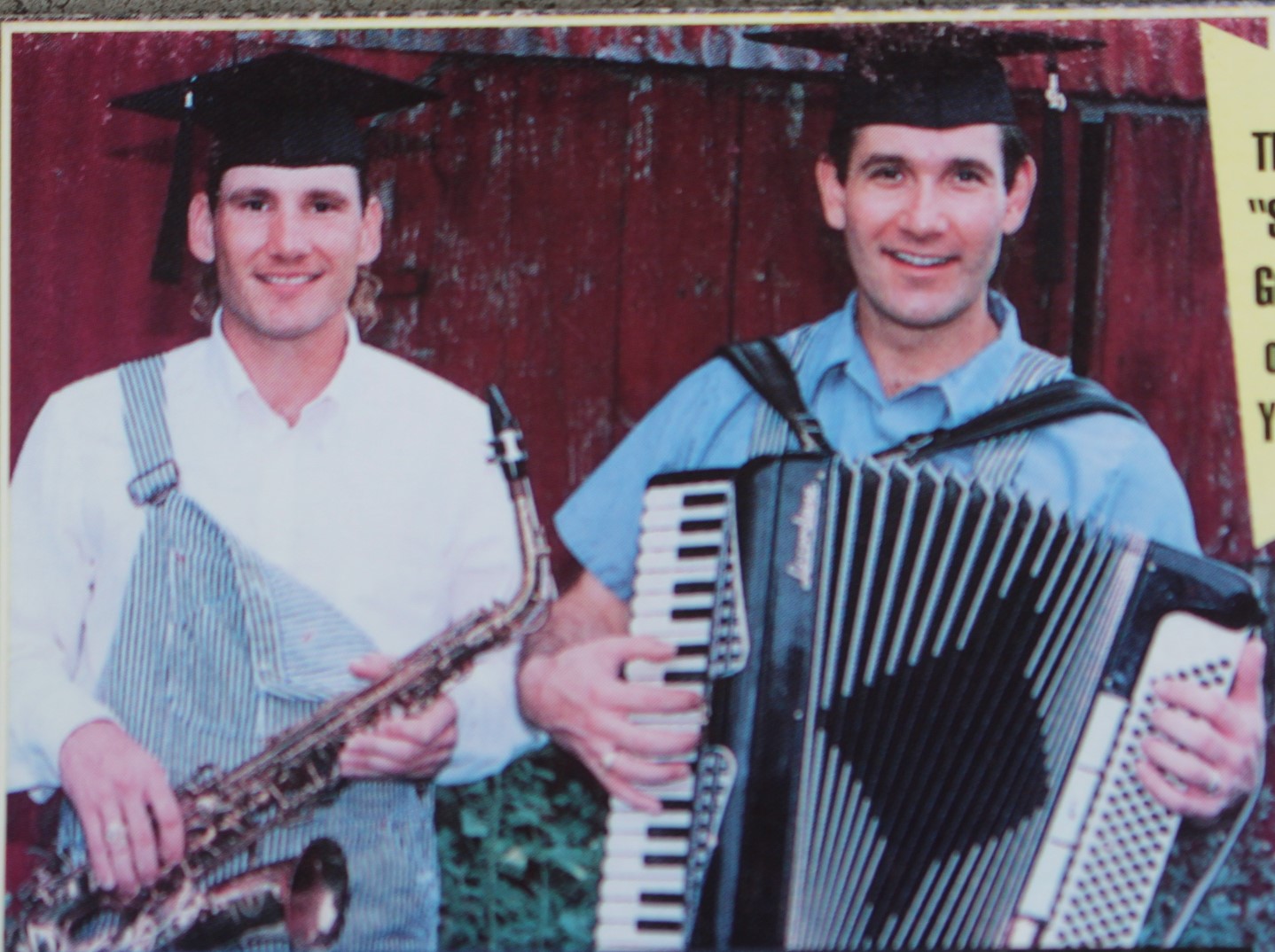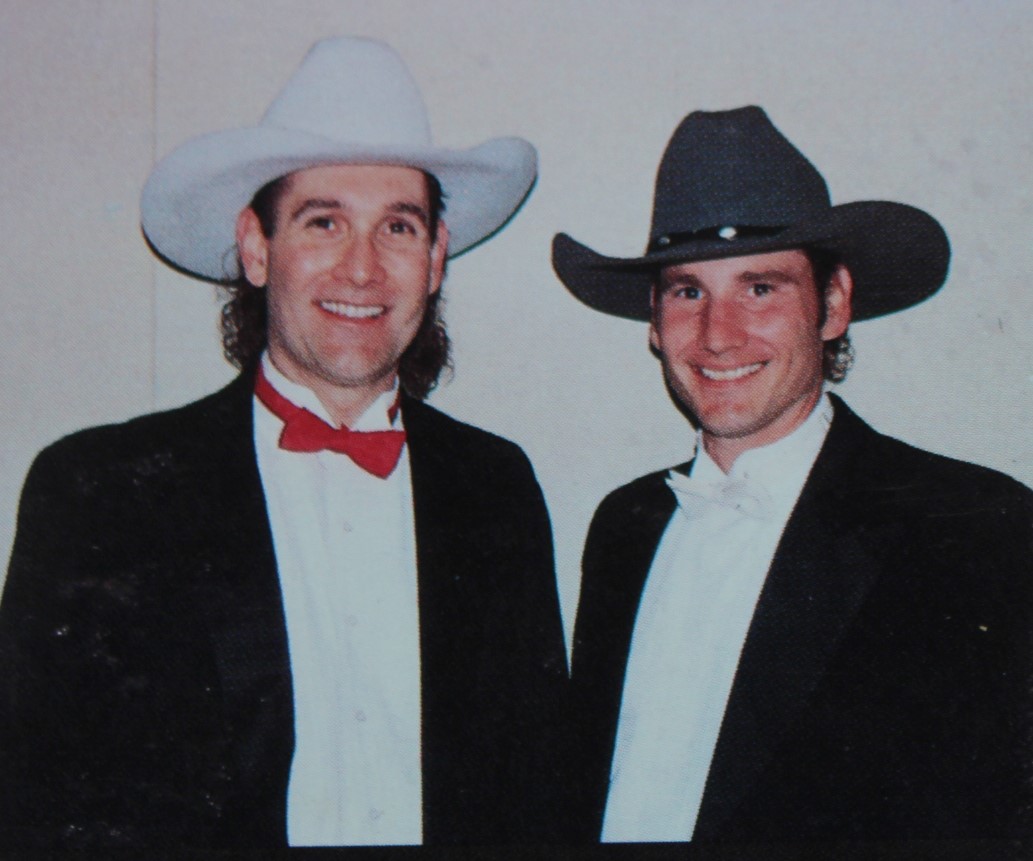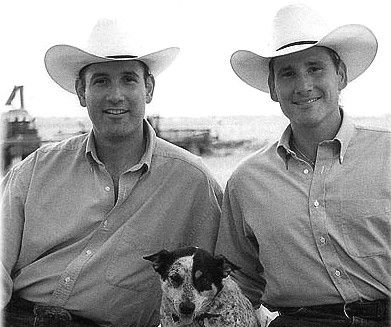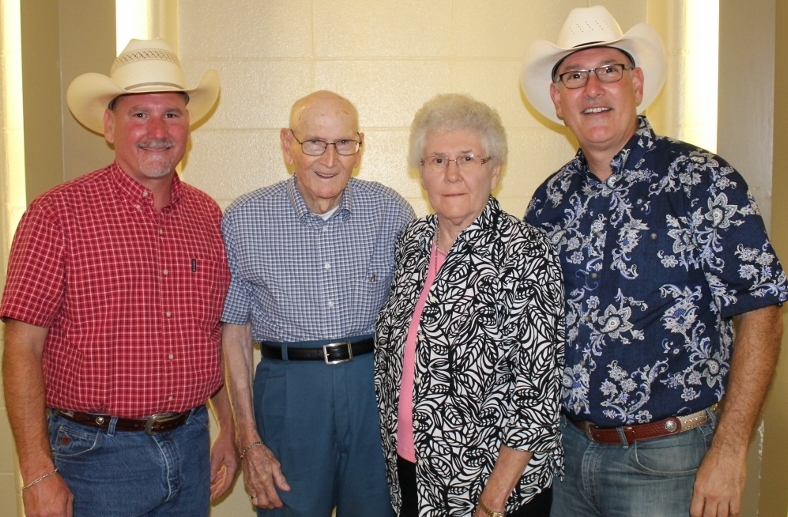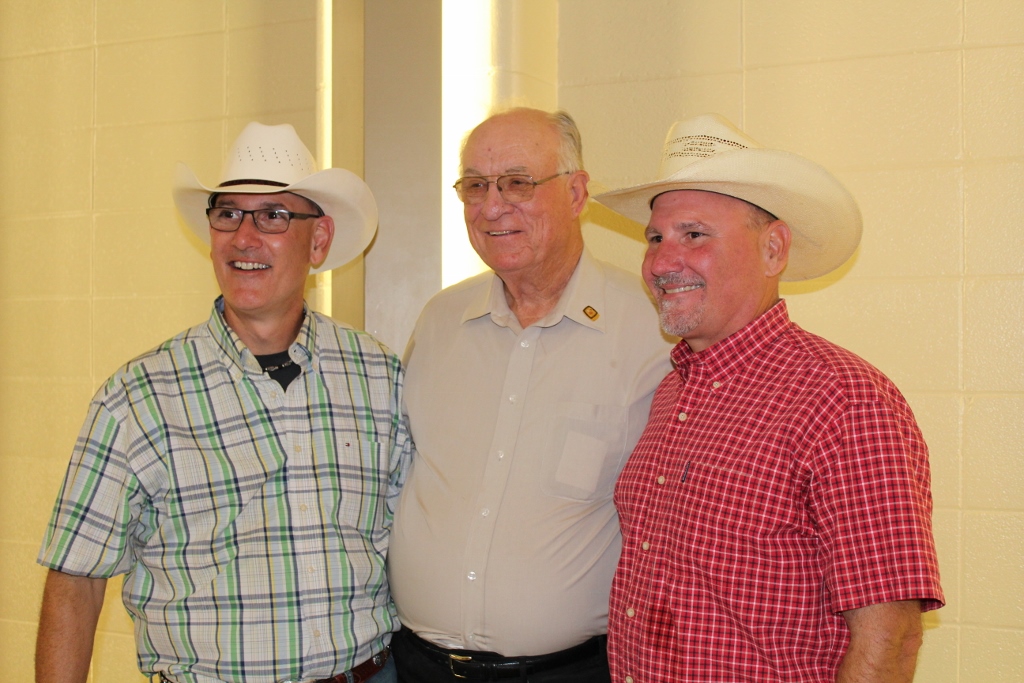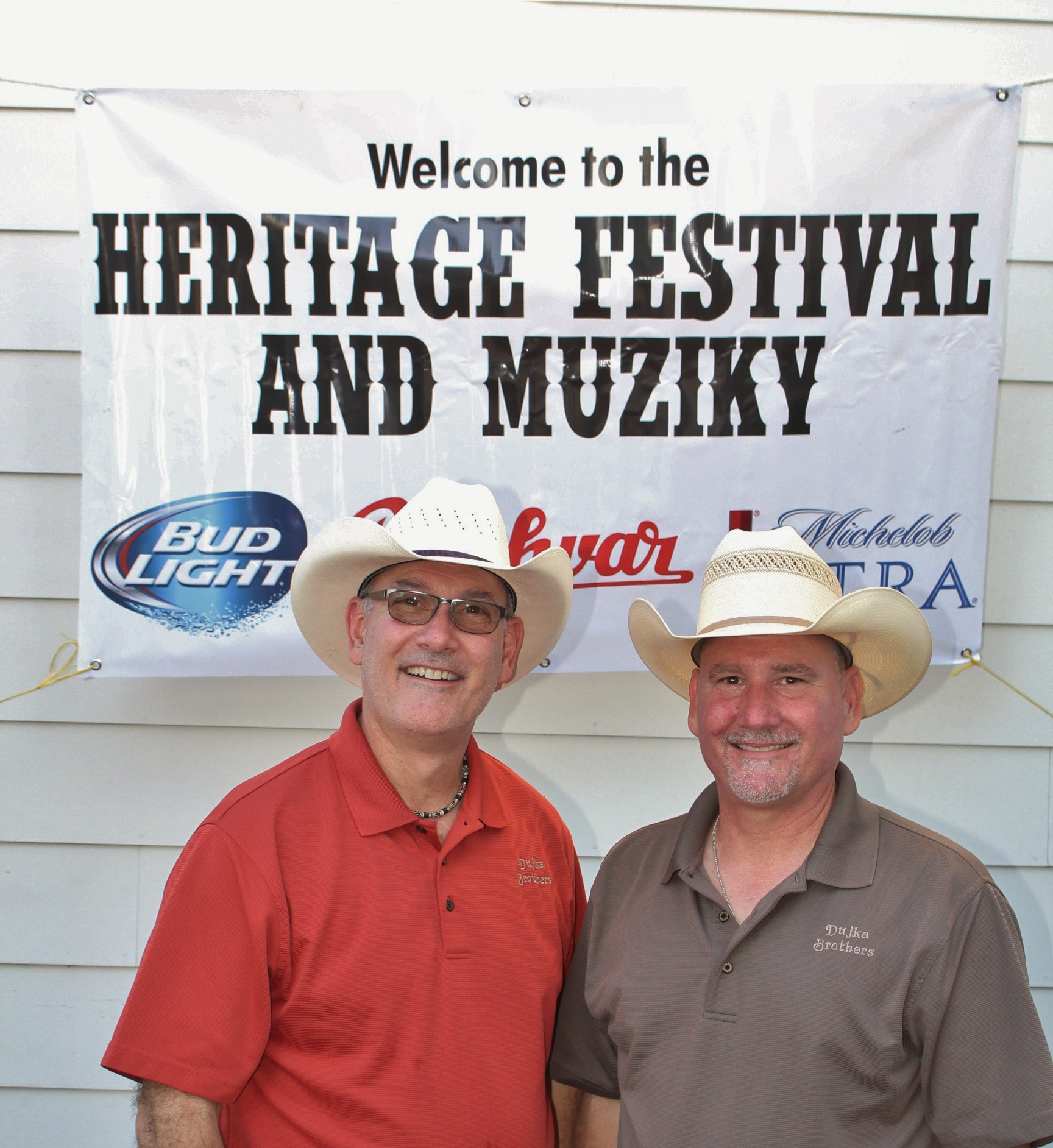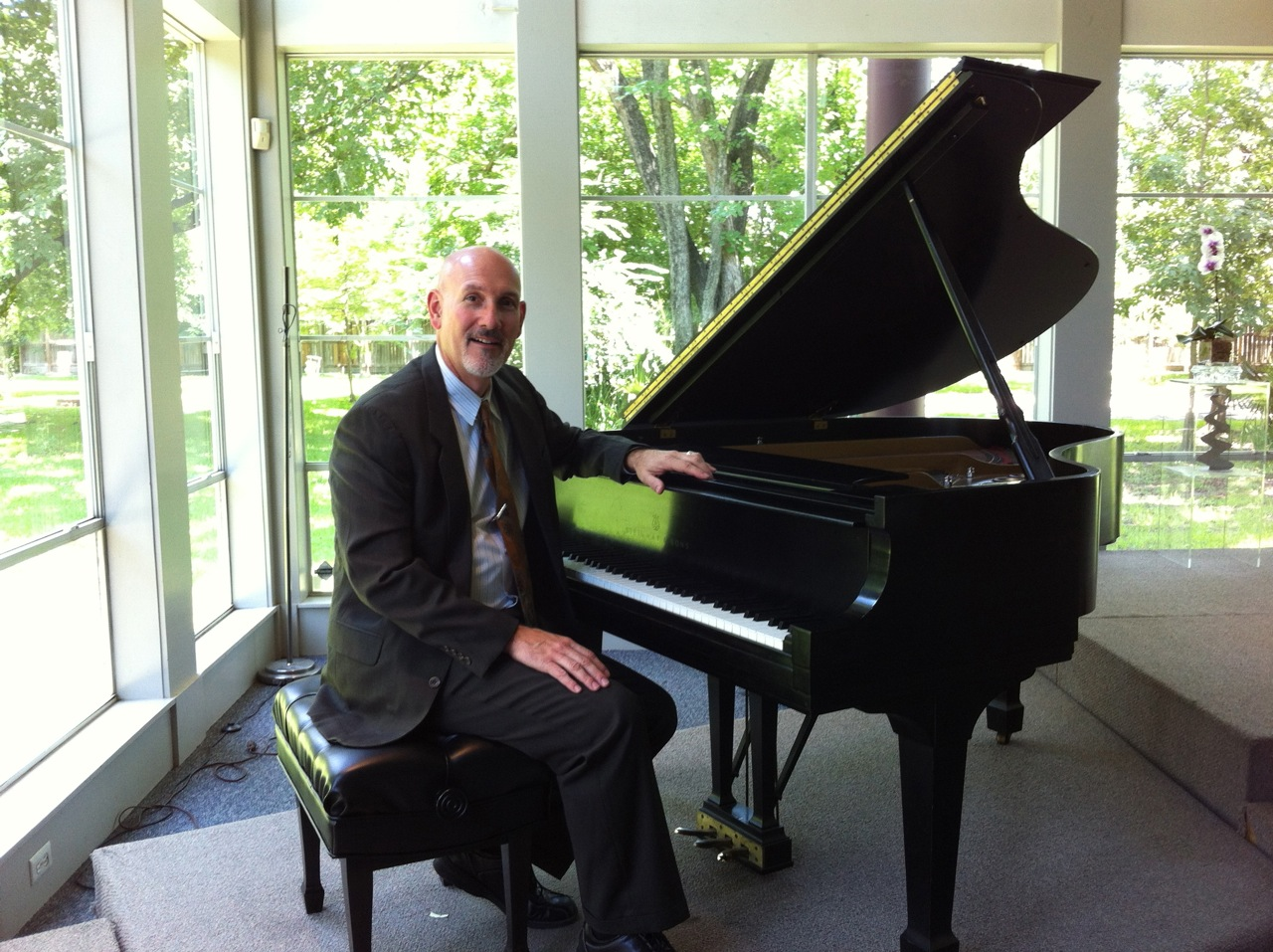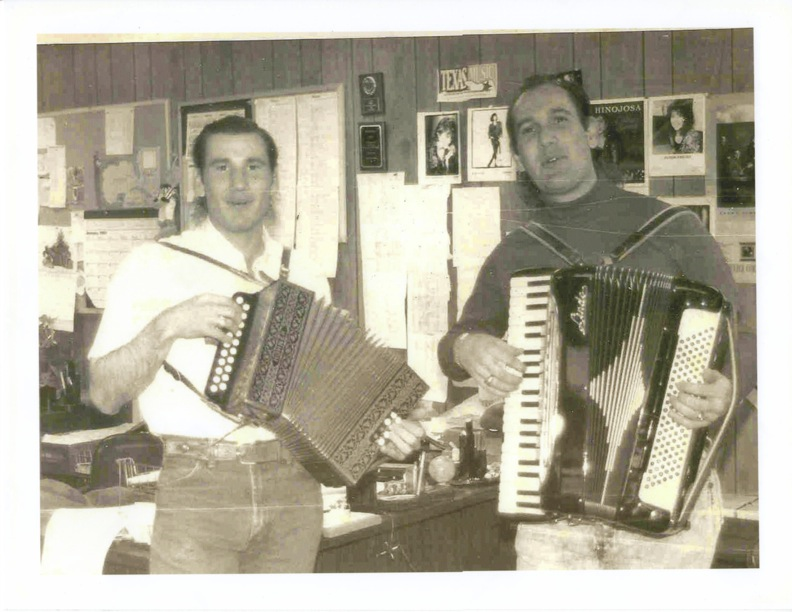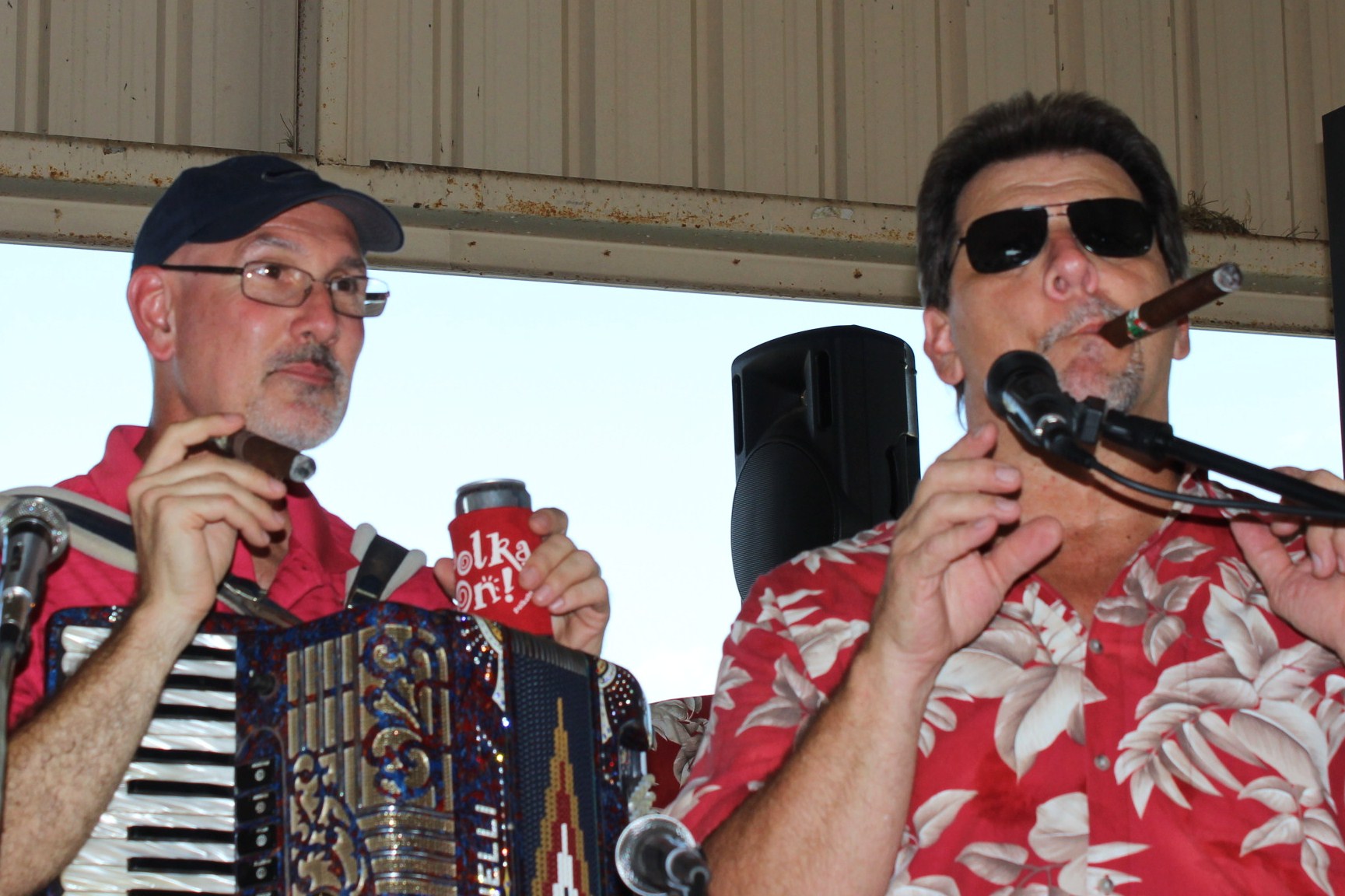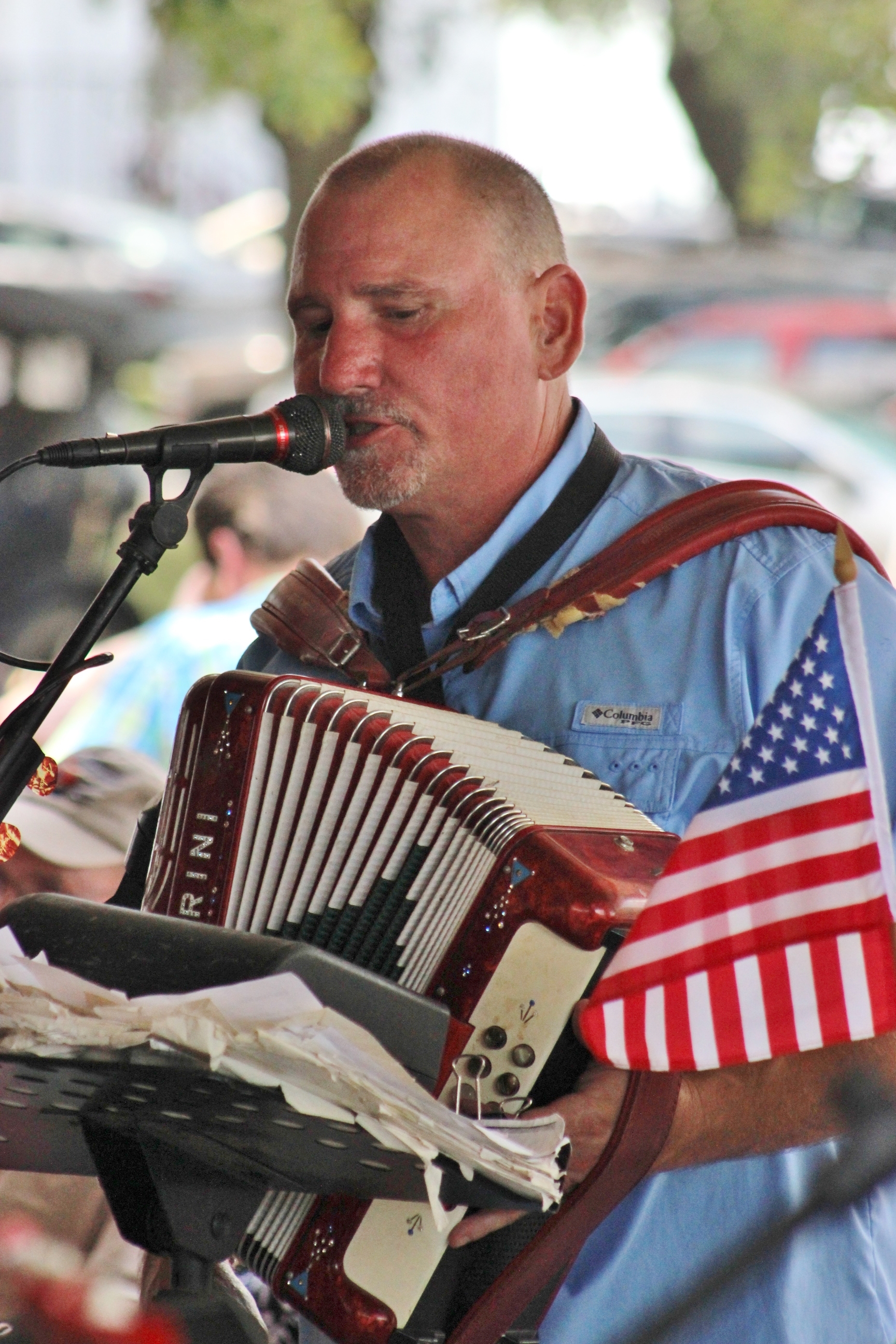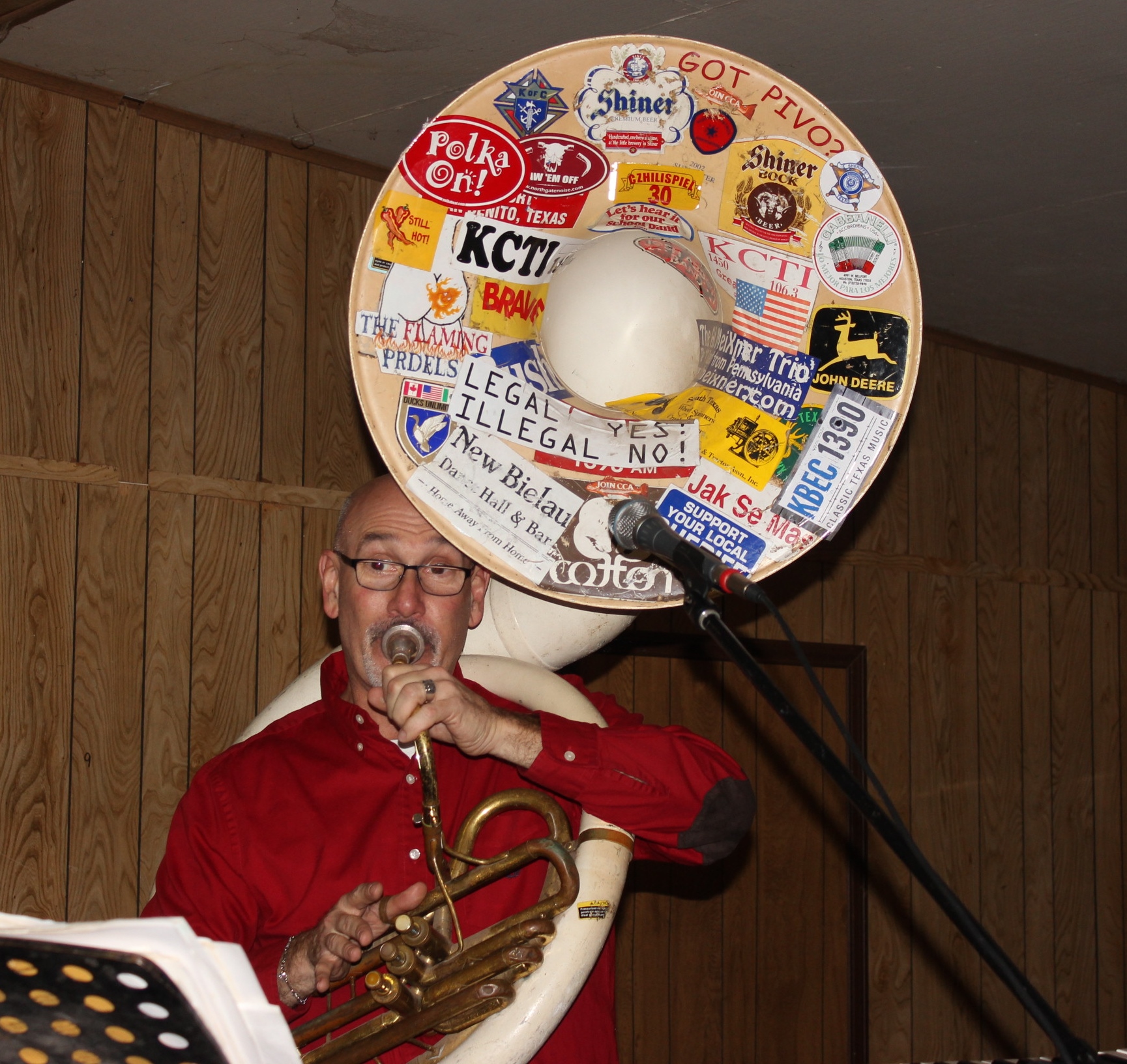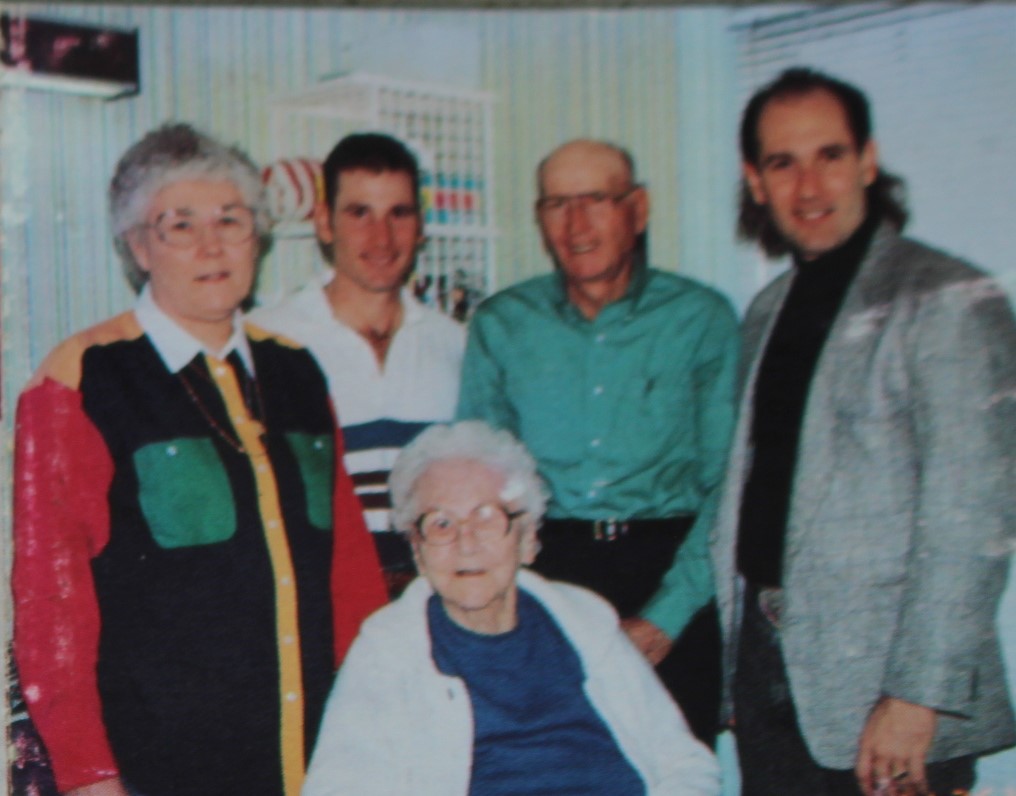By Gary E. McKee
In a triangle within the towns of East Bernard, Wallis, and Rosenberg is the small community of Tavener, founded as a railroad stop in 1890. This flat, fertile blackland area, populated by Czechs in the early 1900s, is well known as a high producer of row crops such as cotton. The Czechs who
come from there are men of the soil and the people who till it. Two of these men are the Dujka Brothers, John and Mark. For the Czech-challenged it’s pronounced doy-ka.
Their father, Willie, who along with his 14 brothers and sisters, carried on the tradition of their
forefathers who conquered this tough black gumbo oasis and raised their family. Their mother, Mary Lou (Brossmann) from St. John, southwest of Schulenburg, was raised in a similar situation.
John and Mark shared the chores around the farm from an early age. John, the oldest, seemed to be musically inclined and was taking piano lessons by the first grade. Younger brother, Mark, seemed to have the music gene also and began taking piano lessons at the same
age. By the time they were in grade school, their music teacher, Jane Turner, owner of Rosenberg Music, confirmed their talent by getting them on television.
The Houston TV show on Channel 39, was a cowboy-themed kiddie talent show, called Don Mahoney and Jeanne Clare’s Kiddie Troopers. Every few months through their grade school years they made appearances on the show singing and playing. John remembers singing Little Brown Jug on his first performance. It was their first taste of bright spotlights and structured performances, but hardly their last.
As time went by the brother’s chops improved (practice, practice, practice) and by the ripe old age of 13, John had his first paying gig at a wedding in East Bernard. Most traditional piano lessons are based on classical music, however, Ms. Turner, was open minded and exposed them to other forms of music, opening their minds to country, jazz, and pop sounds.
Another sound that the brothers enjoyed growing up was the sound of their Grandfather Herman Brossmann’s accordion. They hadbeen to many picnics and heard bands, but it was their grandfather playing at his house that made a huge impression. Though German, he played many Czech songs which the brothers absorbed and learned on the accordion. Mark still plays
the same accordion on stage. It was their grandfather’s passing in 1986 that stimulated the brothers to start exploring their heritage and begin playing more German/Czech songs in
their set lists.
THANKS, AL
In high school, the brothers were blessed to have Al Sulak as a band director. Al has his own band, Al Sulak and the Country Sounds, which has kept the dance floor full for over 30 years with their unique blend of country and polkas. After graduation, Mark started attending college in Wharton as a music major. However, the blackland under his fingernails, spoke to him and he got
a degree in agriculture-business at Southwest Texas State University (now Texas State University), and came back home to farm with his father. After 12 years and a bad back, Mark decided to change careers. A local financial institution was looking for a person with a background in agriculture and business. Mark fit the bill perfectly, and soon had a day job, but still farmed in the evenings.
John entered the music program at the University of Houston and achieved a Master’s Degree in Music with an emphasis on piano performance. In addition to his academic musical training, John acquired an excellent education in Czech music from working as an accompanist/recording
engineer with the East Bernard Czech Singers under the direction of Martha Viktorin. He received lessons on the Czech language in song and how to use the most commonly used lyrics and melodies to make their music even more authentic.
CZECH KARMA
The brothers never started out to make playing music an integral part of their lives, but other forces were at work. In the mid 1980s, Mark had been sitting in on bass guitar with Al Sulak’s band. John had been playing more frequent solo gigs, but injured his hand, so Mark, who had been learning the bass guitar, stepped in. They found that they made a pretty good duo, but they still just played small events.
Their confidence increased when John temporarily lost his voice and the vocal duties were all Mark’s, giving him even more singing experience. The Bleiblerville (south of Brenham) Fish Fry offered them a paying gig and The Dujka Brothers premiered to the general public at this fun little gathering. As the bookings increased, KULP polka disc jockey B.J. Sablatura began encouraging the brothers to make a cassette of their favorite songs. They returned to their roots and recorded their first cassette, At the Dance, in the Tavener house that they grew up in.
After completion, marketing wasn’t a problem, as both B.J. and Bobby Jones played them on their KULP shows. Their version of The Hills of Shiner Polka was the first song that the brothers heard on the radio, giving them pause to think that maybe that there is a chemistry between them.
The song and cassette were received by the public like a fresh batch of kolaches right out of the oven. From then on the brothers never looked back. A total of 11 recordings followed including the just released Let’s Have a Party: The Dujka Brothers 30th Anniversary CD. John has
returned the KULP favor by having his own weekly polka show, which carries on the tradition of playing requests and helping new bands get exposure.
THANKS, FANS!
The Dujkas have always been very thankful for their fans, and the liner notes on their releases have, whenever space allowed, included English translations of the Czech songs. Just prior to completing the Road to St. John, famed musician and disc jockey Lee Roy Matocha passed away. Lee Roy had geographically extended the brothers’ fan base by playing their songs on his show based in La Grange with syndication on other stations in Brenham, Columbus, and Gonzales. The brothers went back into the studio and recorded a tribute medley to Lee Roy.
The brothers have never had an actual band. In the beginning, John utilized a drum machine to back his personal piano playing. When Mark joined his brother, he brought saxophone, guitar, and bass instruments, so the drum machine was still used. As the duo began performing at larger venues like the St. John picnic (continuous appearances since July 1987), John brought in his laptop computer to produce a fuller sound. Mark and John would record all the necessary parts (tuba, sax, drum, guitars) themselves to be played later, as if there were five or six Dujka brothers. This writer remembers a St. John picnic, in the last century, where some of the old timers would walk around the stage looking for all the extra musicians they were hearing. John said that they never really talked about having a full band, and looking back, they adopted a “if it ain’t broke, don’t fix it” attitude, which sounds like a song that needs to be written.
PIVO & TAMALES
Speaking of song writing, the Dujkas have contributed a lot of new music to the polka and waltz world. John collaborated with Daniel Klapuch and Mark Hermes on the FM 959 anthem, Moon Over Moravia, which helped put Henrietta and Frankie’s store on the map. Light-hearted songs such as Out Behind the Barn, Grandpa Got Drunk at the St. John Picnic, and Pivo and Kolaches, Cerveza and Tamales not only tell of rural culture, but are just plain fun to sing and dance to.
John said the Pivo song came about when there seemed to a large number of Hispanics in his music classes. (He is a music professor at Blinn College.) He got to thinking about the similarity
between his Czech traditional polkas/culture and the Tejano traditional polkas/culture. A song was born.
By the early 1990s, The Dujka Brothers were averaging 75 gigs per year. That’s performing once every five days while holding down day jobs. John has been a professor of music at Blinn College in Brenham since 1990. Mark marked his 10th year in the banking business helping farmers and ranchers of his home territory keep the tradition going, and has helped transition his family farm into a cattle business.
The Dujka Brothers strive to keep the music vibrant and speak to the heritage of their forefathers. That is never more evident than in their latest CD, which was recorded, where they
began, in their parent’s home. The CD is a great mixture of old and new tunes including Church Picnic Polka and Seven Step Polka so you can practice shouting HEY! at home.

